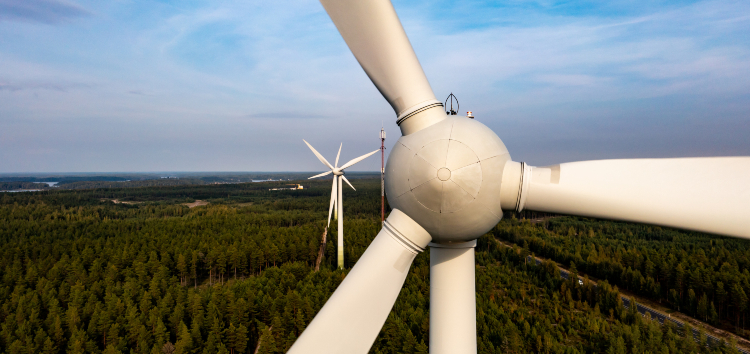
Water Conservation: 7 Simple Ways to Save Water at Home and in Your Business
Water is one of our most precious resources, yet it is often wasted without thought. ...

Gianpiero Nacci, Director for Sustainable Business and Infrastructure of the European Bank for Reconstruction and Development (EBRD), said the circular economy is a key component of the bank’s Green Economy Transition approach and is critical to the low-carbon transition. It also has significant nature-related and environmental co-benefits.
He said “At the EBRD, we have been promoting circular-economy projects and practices for over a decade.”
During the World Circular Economy Forum (WCEF) 2024 in Brussels, leading multilateral development banks (MDBs), including EBRD, presented their Circular Economy Working Group’s shared vision on the role of MDBs in supporting the circular economy.
The shared vision was unveiled at a session titled “Shaping a global vision for circular finance”, which saw MDB directors emphasize the critical role MDBs play in facilitating the uptake of circular-economy approaches. The MDBs recognized that circularity is important to achieving sustainable and just development in the 21st century.
Working together for more circularity, MDBs will continue to strengthen internal capacity in order to continue our demand-based support for circular-economy approaches, both within our lending and advisory activities in addition to exploring methodologies to demonstrate how circular solutions can generate economic value, while fostering just and inclusive sustainable development
MDBs will also enhance resource efficiency considerations within their operations across sectors and facilitate the exchange of knowledge with the private sector, civil society, and local, regional, and national authorities.
The eighth World Circular Economy Forum (WCEF) highlights solutions to tackle our societies’ over-dependence on natural resources. WCEF2024 emphasises the circular economy as a key source of future well-being and the premier post-fossil fuel investment frontier. The forum will take place in Brussels, Belgium from 15-18 April, and convene thousands of experts to explore the vast opportunities presented by the circular economy.
Overconsumption in high-income economies will be widely discussed in the next World Circular Economy Forum 2024 (WCEF2024). Development of well-being has thus far been strongly based on the ever-growing use of virgin natural resources. A strong focus on circularity is now needed, as the foundations of well-being are eroding.
“The transition to a circular economy is not fast enough. We need to implement policies that genuinely extend the lifecycles of products and adopt business models that increase utilisation rates and recover critical raw materials. Alongside resource efficiency, this is vital for our economies and for civic peace. According to the report by the UN’s International Resource Panel, in a resource efficient world, global GDP in 2060 could be three percent higher than predicted,” states Atte Jääskeläinen, President of the Finnish Innovation Fund Sitra, the initiator of the WCEF.
The WCEF2024 accelerates the circular transition in economies around the world. In addition to the transition from fossil fuels to renewables, the promotion of resource efficiency and the circular economy as means of influencing material use should be high on the agenda. However, some efficiency challenges may be very far away in the future, such as recycling scarce minerals.
اترك تعليقا